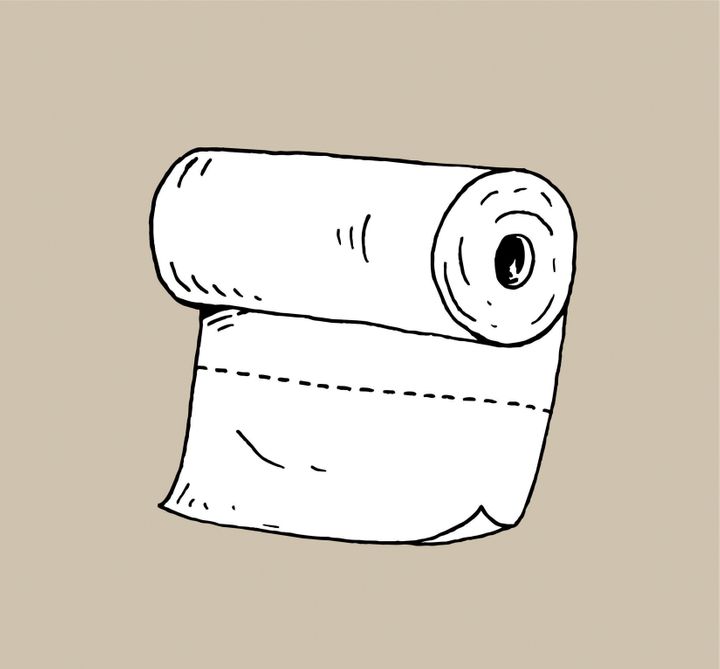“Find a job you love and you’ll never have to work a day in your life.”
Ever since I entered the workforce about a decade ago, I’ve noticed versions of this expression on inspirational posters, mugs, online memes, laptop stickers and more. The phrase speaks to the idea that if you are passionate about your work, it won’t feel like a chore or a burden, but rather an enjoyable and fulfilling experience in which you want to take part.
This is all a nice idea, but even in a job you love, is it really possible to feel like you’re never working? I spoke to career coaches, psychologists and people who genuinely love their jobs to find out what they think about the expression and how it relates to the reality of work.
Advertisement
It makes sense why the phrase appeals to people.
“When so many people are stressed and burnt out by work, the idea that you could have a job that doesn’t ‘feel like work’ is incredibly appealing,” said Lauren Appio, a psychologist, executive coach and organisational consultant who specialises in mental health at work. “It’s aspirational and soothing for people who live in a culture like ours in the U.S., where there is little social safety net and people typically have to work very hard to make ends meet.”
Many people have very negative relationships with their work. Gallup’s latest State of the Global Workplace report showed job dissatisfaction to be at an all-time high, along with staggering rates of unhappiness and disengagement.
“You hear about the ‘Sunday Scaries’ or a ‘case of the Mondays,’” said career strategist Ana Goehner. “Some people also believe that everyone hates their job. This expression gives people hope that finding a job they love makes their negative feelings about work go away.”
While people commonly attribute the quote to Confucius, there’s very little information regarding the origin of “find a job you love and you’ll never have to work a day.” Some citations of the expression date back to the 1980s, but it seems to be even more prominent in the Etsy era of embroidered quote pillows and inspirational memes.
Advertisement
“I think this mantra is almost as millennial as ‘live, laugh, love,’” said Kate Kennedy, author of the upcoming book “One in a Millennial” and host of the “Be There in Five” podcast. “I’m not sure when it became widespread, but I remember hearing it a lot in the early 2010s, whether it was a product of being post-recession, the start-up boom, or being in peak ‘Shark Tank’ America.”
Having entered the workforce amid the economic downturn of the Great Recession, Kennedy believes many young people were made to feel lucky to have any job at all.
“There comes the point of burnout where a lot of the joy is sapped from the hobby when it becomes your meal ticket.”
– Kate Kennedy
“That built-in sense of indebtedness to our employers normalised having a job you tolerated that paid the bills, so having a job you loved seemed like the most glamorous dream of all,” she said.
Meanwhile, technological advancements expanded our career options, with full-time bloggers, Instagram influencers and entrepreneurs monetising their hobbies through e-commerce and other new sources of income. Social media compounded the shift, as we saw people “just like us” showing off their flexible schedules, financial success and other aspects of these new aspirational work lifestyles.
Advertisement
“It’s hard not to find other people’s lives and careers more desirable based on how they portray them online,” Kennedy said. “It’s almost like the volume of options and the frequency of seeing successful examples of exercising those options created a sense of ‘elsewhere’ for careers, where during the moments you are feeling job dissatisfaction, it’s hard not to idealise doing something else.”
But the reality is often detached from the ideal.
“It’s important to acknowledge that not everyone has the luxury of choosing a job they love,” said Elizabeth Pearson, a women’s career coach and author of “Career Confinement.” “For many people, their work is simply a means to an end, and they may not find much enjoyment or fulfilment in it. Additionally, even if you do love your job, there will still be times when it feels like work ― deadlines, difficult projects and long hours can all take a toll on your energy and motivation.”

We Are via Getty Images
Stressful situations, terrible bosses, difficult co-workers, economic downshifts and other obstacles can arise no matter how passionate you feel about your work. Thus, “find a job you love and you’ll never have to work a day in your life” is, for most people, more of a feel-good statement than a feasible reality.
“I see this idea sold to service professionals: Work for yourself and do what you love,” Goehner said. “But few people discuss the challenges of building a business and performing tasks you dislike. Few people talk about the issues you face and all the learning involved. Doing what you enjoy should be the norm, but it’s still work. You are still trying to make a living.”
Advertisement
Even if you have the freedom to take a leap and monetise your hobby, it probably will still feel like work at times.
“There comes the point of burnout where a lot of the joy is sapped from the hobby when it becomes your meal ticket,” Kennedy said. “The biggest issue for me when I started a product-based business was not having access to capital to outsource or hire out many of the functions to get off the ground efficiently, so it all fell on me to figure out, which ended up with me working way more hours for a lot less money than I made in my corporate job.”
The job doesn’t magically feel like it’s not work once you’ve found a sustainable way to make a comfortable living, either.
“I absolutely love my job, and I’m still beat by the end of the day,” Appio said. “It requires deep, sustained focus and active emotional processing and regulation for hours at a time. Outside of my sessions, I also complete paperwork, manage all of my billing, marketing and communications with clients and colleagues, offer consults for prospective clients, develop and deliver trainings, and pursue continuing education.”
Any job comes with difficult days, including one that overall brings fulfilment and joy. And it’s normal to not always want to devote the required time and effort to the job.
Advertisement
“Even when you find work you love, jobs are temporary,” Goehner added. “In our current economy, you won’t likely spend your entire career with one company and do the same tasks. Even people who dedicate their lives to their careers may have tough days or perform tasks they dislike. You do what you enjoy, receive pay and hopefully get recognised for your efforts.”
What you ‘love’ doesn’t always translate to success or happiness.
“Telling others to ‘do what you love!’ is an oversimplification. Doing what you enjoy is not enough. Doing what you’re good at ― and being willing to stick with something, even when what was fun is no longer so fun ― can be just as important,” said Gorick Ng, a career adviser at Harvard University and author of “The Unspoken Rules: Secrets to Starting Your Career Off Right.”
Consider whether you can leverage certain skills or expertise to succeed in your field.
“Maintaining the belief that work you love isn’t actually ‘work’ can create shame for people who feel burnt out or overwhelmed by work that they do truly love. This is especially common in work like health care, mental health and education.”
– Lauren Appio
“The expression doesn’t help people see possibilities based on where they are in their careers now,” Goehner said. “You can use your skills, gain new ones and find a workplace where you use 60-70% of the skills you enjoy. Sometimes, feeling a sense of expertise and having the freedom to share that at work can help you feel a sense of purpose or connection with your job.”
If you’re feeling drawn to a completely different path, give it a lot of thought and do your research. Ng emphasised that the idea of something is often more interesting than the thing itself.
Advertisement
“Would I like to be a musician? Sure! Can I sing to save my life? No!” he said. “And does singing the same song over and over again in a different city each week still sound fun when I haven’t been home for six months? I’m not so sure.”
“Your number one passion may not be a realistic career,” Goehner added. “I’d love to take care of baby pandas, but the likelihood of this happening is minimal. Also, what you love may not provide a decent living for yourself or your loved ones. It could be a source of income, but you may need to supplement it with another job. Love doesn’t always pay the bills.”

Morsa Images via Getty Images
Additionally, consider how you feel about the business of the thing you love, not just the activity or hobby itself.
“It’s great to have a dream job, but it’s also important to remember that you may not like the day-to-day tasks associated with monetising that dream,” Kennedy said. “I started a handmade business selling home decor where I hand-painted things, and I loved the category, I love working with my hands and being creative and I loved the idea of self-employment. But I didn’t spend most of my days doing an artist’s work ― I was mostly buried in things I was less passionate about, like shipping, fulfilment, customer service, and inventory management before I could afford help in those areas.”
Advertisement
Ng shared a time he met a talented photographer and asked if he wanted to pursue his art as a full-time career.
“His response surprised me,” Ng recalled. “He said, ‘I love taking photos, but I hate the business of taking photos. The minute I start relying on photography to pay the bills is the minute I’ll stop loving it.’ Be honest with yourself if you’re thinking of turning an interest into a career. Do you love the business of doing something as much as you love doing the thing itself? Not everyone will say yes to this question and that’s OK.”
The expression sets up workers for dissatisfaction and shame.
One problem with this idea about work? “It can keep people preoccupied with finding their ‘dream job’ and experiencing a chronic sense of dissatisfaction,” Appio said. “Because if your work feels like work ― as work does ― does that mean you’re doing something wrong?”
This fantasy of doing what you “love” and never feeling like you have to work can also lead to feelings of guilt or shame for those who don’t take a huge leap. This is especially true in the age of social media when we frequently see “creators” sharing all the highlights of their careers and few if any of the downsides.
“When I was in a corporate job, I wondered if I had ‘sold out’ or forwent meeting my potential by working in the corporate world,” Kennedy said. “Sometimes, it creates a fear that you actively chose to do something you don’t love when you could have followed your passion.”
Advertisement
There’s a sense of guilt for those who do make the choice to pursue a passion-based career.
“Maintaining the belief that work you love isn’t actually ‘work’ can create shame for people who feel burnt out or overwhelmed by work that they do truly love,” Appio said. “This is especially common in work like health care, mental health and education. Professionals in these areas may feel guilty or ‘ungrateful’ for experiencing compassion fatigue or needing a break.”
She also believes the “find a job you love and you’ll never work” expression can be used to further devalue creative or mission-driven work.
“If you love your job, people will often tell you that you ‘didn’t get into it for the money,’” Appio said. “But we all work to earn money, and even if we’d do our work for free in a different world, we all deserved to be paid well for the work we do.”
But it’s not completely off base.
“This is actually an expression that I believe in myself, and there have been moments where I lived it,” said career coach Jasmine Escalera. “The thing is, I do believe the expression needs to be tailored because it isn’t just about finding work you enjoy, but finding work that is connected to your purpose, to your passions and to your strengths.”
She believes a job that integrates the skills or tasks you’re particularly good at can make you feel inspired and as though you’re not working at all.
Advertisement
“The company culture is such an integral part of enjoying the work, as well,” Escalera said. “So I would say not just find a job you love, but find an environment that will let you be the most successful version of you, and you’ll never feel like you have to work a day in your life.”
Other experts offered their own rewrites of the expression.
“To make the expression accurate, I’d say, ‘Find a job you enjoy and that recognises your efforts, and build time for hobbies and activities that bring purpose outside of work,’” Goehner said. “You are more than your job.”
“I’d tell people if they haven’t found a job they love, to find a job comprised of tasks they like and do what they love on the side,” Kennedy added. “Jobs are often more about the day-to-day than the broader industry or buzzwordy job description, and paying attention to the type of work you find engaging can be a good way to find job satisfaction within the confines of being employed by someone else.”
Whether you’ve monetised a hobby or simply work to pay the bills and seek greater purpose elsewhere, Ng noted that there is no objective right or wrong in your approach to your career, just a difference in personal choices and values.
If you do want to find meaning in work, however, he shared this rewrite: “Find something that brings you joy and purpose every day, and you’ll always have something to look forward to.”
Advertisement
“Ultimately, the idea that you should ‘find a job you love’ is a good one, but it’s not always realistic or feasible,” Pearson echoed. “Instead, it’s important to strive for a job that aligns with your values and provides some level of fulfilment, while also being realistic about the fact that work is still work, even if you love it.”
This story was previously published on an earlier date.















